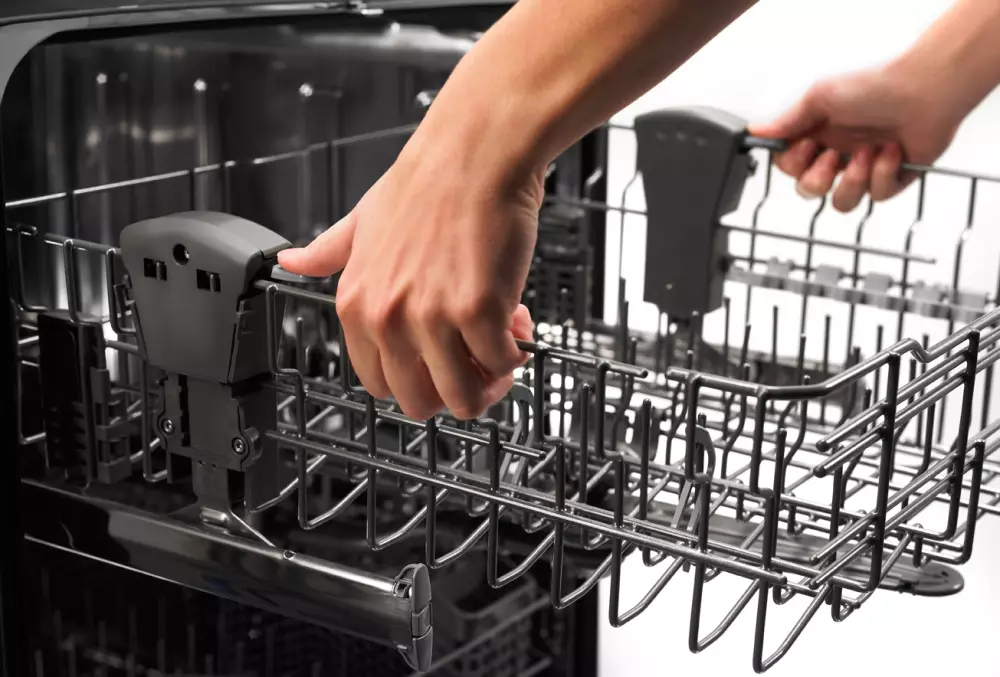How to Clean Bathroom Drains: Unclog Your Shower and Sink Drains with These Steps!
You know how it gets. You're in the shower and realize that the drain is clogged. You're stuck. You can't get out of the shower without help from a plunger, a mop, and a bucket. Or you're in the bathroom sink, brushing your teeth, and suddenly water starts to back up into the bowl. You go to unclog it, but the drain is full of hair, soap scum, and other gunk accumulating for months.
What do you do? How can you clean your bathroom drains so quickly? It's frustrating, but it doesn't have to be a big deal. We'll give you tips on cleaning your bathroom drains so they don't clog again.
The bathroom is one of the most popular rooms in your home. It is a place we go to cleanse and relax, so it is just right to hire a house cleaning service in Melbourne to clean it regularly.
However, the bathroom can also be one of the most problematic regarding drains. Bathrooms tend to have a lot of water going through them, which means they're also more prone to clogged drains. And if your drains are clogged, your bath time is anything but relaxing.
And while you may think that cleaning your bathroom drains is a waste of time, it's an essential part of keeping your toilet running smoothly and smelling great.
And here's some good news for you. You can live with a clean shower or sink drain. It's easy to take care of these problems with just a few simple steps.
In this guide, we'll tell you how to clean those pesky bathroom drains so you can return to enjoying your space again. Here are some simple steps to clean your drains, which work like new ones.
How to Clean a Bathroom Sink Drain?
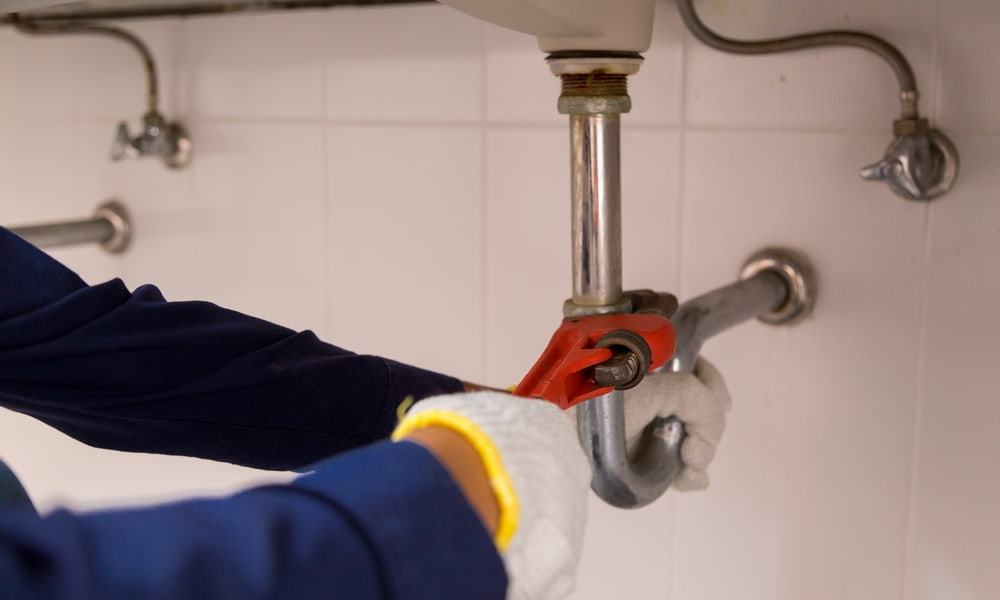
If you regularly give the drain in your bathroom sink a little attention, you can stop mould and mildew from growing in your drain and keep clogs at bay.
Good news: clearing the drain in your bathroom sink is a breeze. Even better news: we have detailed, step-by-step instructions to have your bathroom sink drain shine in no time.
What You'll Need
Instructions
1. Clear out any debris or rubbish you find
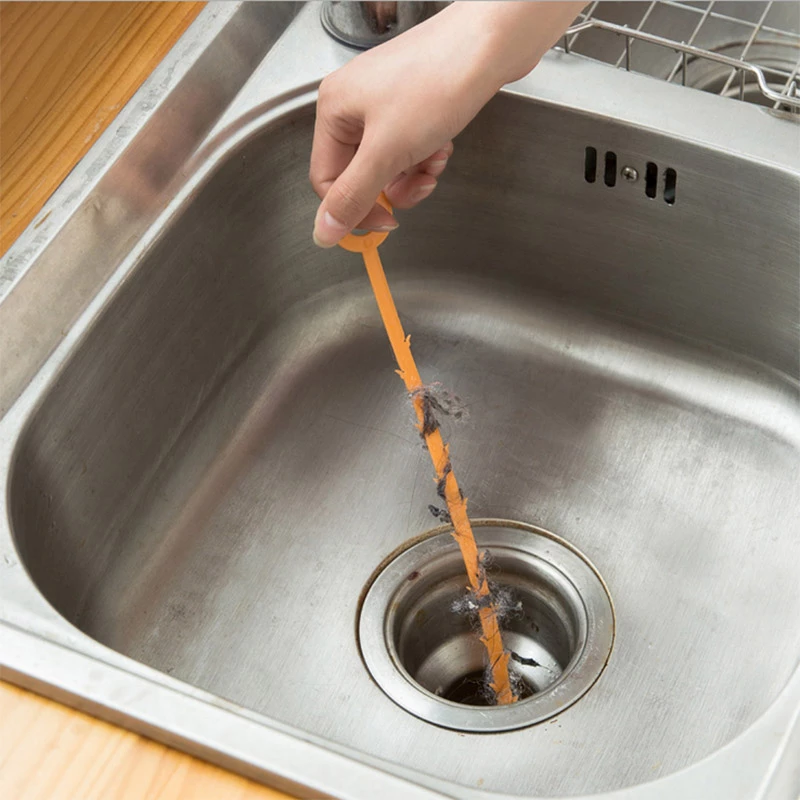
Start by using your fingers or whatever else at hand to remove hair, toothpaste, and other visible and accessible debris. Throw it away and run the water from the faucet for 5-10 seconds.
Do this once a week as recommended. It won't take more than 15 to 30 seconds, but it will go a long way toward preserving the health of your drain and avoiding the growth of unpleasant things like mould and mildew.
2. Make your own vinegar-cleaning solution
If you already use vinegar to clean, you can use your usual vinegar-based cleaning solution. If you've never used vinegar to clean before, or if you want to try something new, mix equal parts of distilled white vinegar and water, then carefully add a dash of baking soda.
When used together, baking soda and white vinegar make a powerful cleaner, but mixing them too quickly can make a big bubbly mess. In total, you will need about one cup of vinegar solution. And if you don't like the smell of white vinegar, you could add a little lemon juice to give the cleaning solution and the drain a bright, citrusy scent.
3. Pour your vinegar solution down the drain
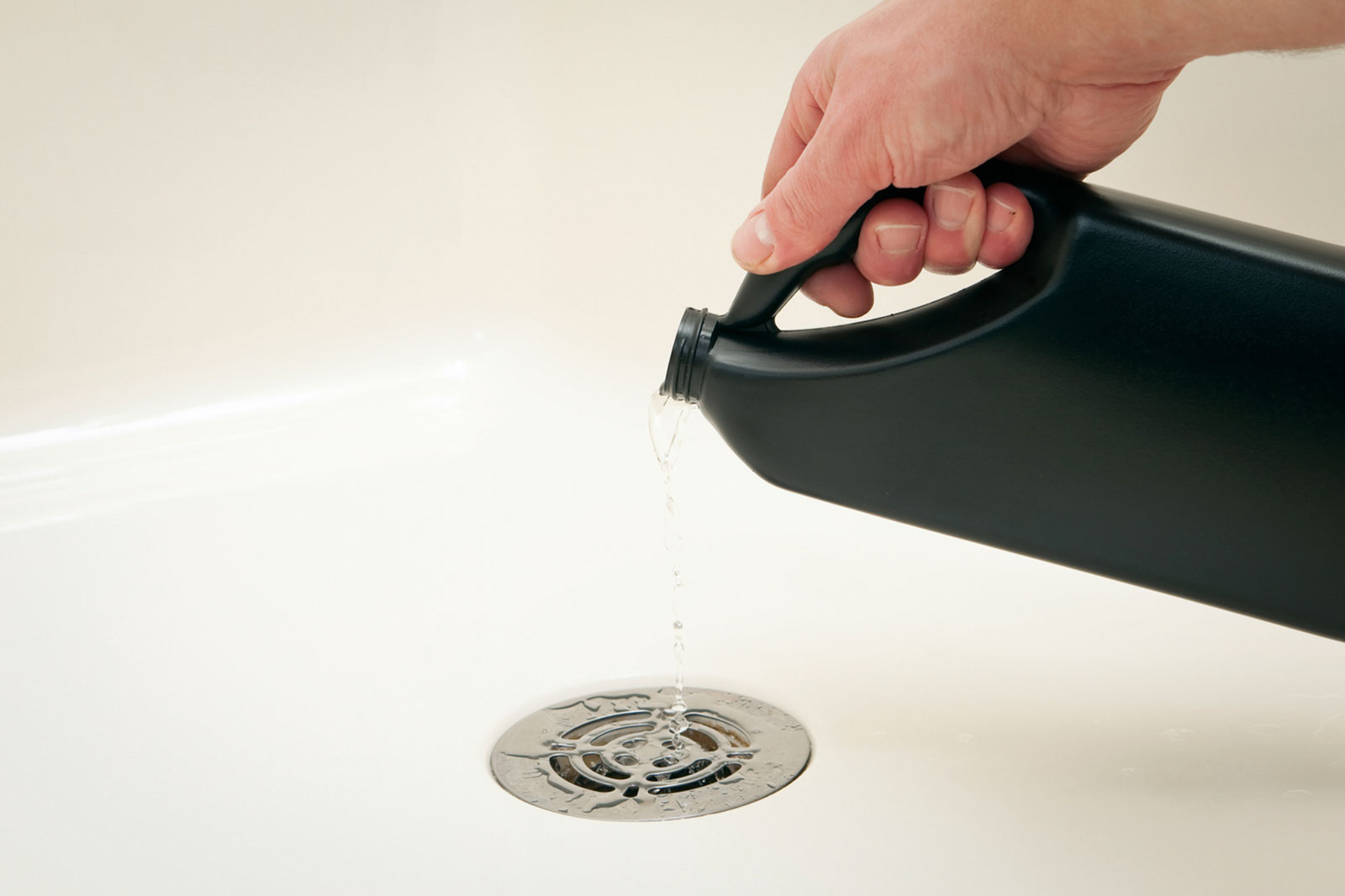
After making a cleaning solution with vinegar, pour it down your bathroom sink drain and let it sit for about an hour.
You can go for a walk, play with your dog, take a nap, or do other things around the house while the vinegar solution does its thing.
4. Flush your bathroom sink drain with boiling water
After an hour, run boiling water down the drain to remove the vinegar solution and any lingering gunk or filth.
A clean bathroom sink drain is not worth a second-degree burn, which we are confident you are aware of, so be extra careful when flushing your bathroom sink drain with hot water.
5. Use dish soap as an alternative
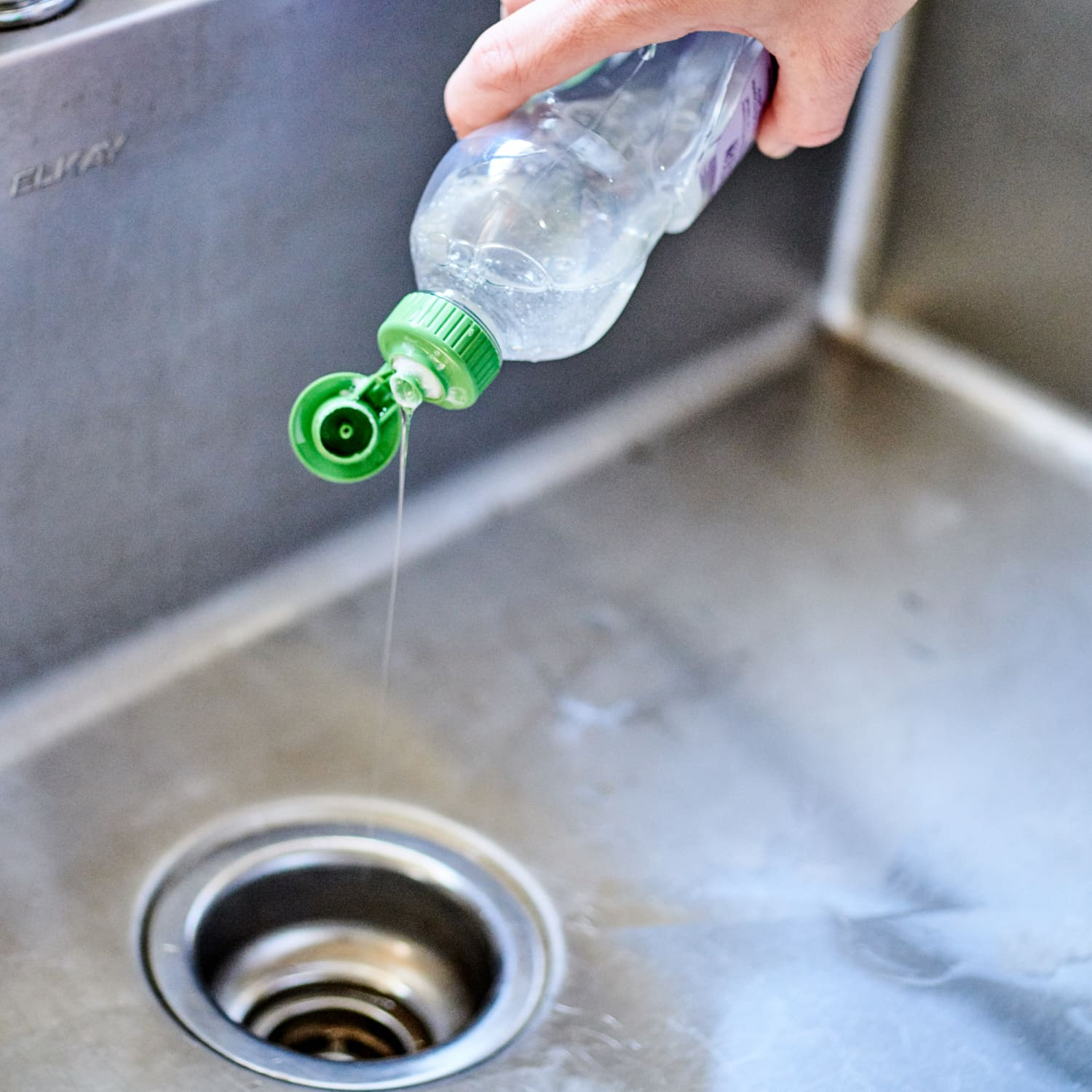
If you don't have white vinegar and baking soda on hand, you can unclog your bathroom sink drain with liquid dish soap instead. You have two choices if you choose this path.
Pour boiling water, followed by a cup of liquid dish soap, down your bathroom sink drain to dislodge any obstructions and grease buildup. Follow with additional boiling water.
Alternatively, combine dish soap and lukewarm water beforehand and then pour it down the drain. Note that this second approach is intended for minor blockages. If the problem is more significant, choose the first option.
6. Clean the bathroom sink and your counter
At least once per week, it would be best if you cleaned your bathroom sinks and the counters around them.
To prevent filth, dirt, debris, and everything else from accumulating and producing a clog, and maintain your health, wipe off your countertops and bathroom sink weekly with a solution of vinegar or dish soap or an all-purpose bathroom cleaner using a sponge, scrub brush, or rag. Be sure to clean the faucet at the same time.
7. Use a drain snake to clear a stubborn clogged drain
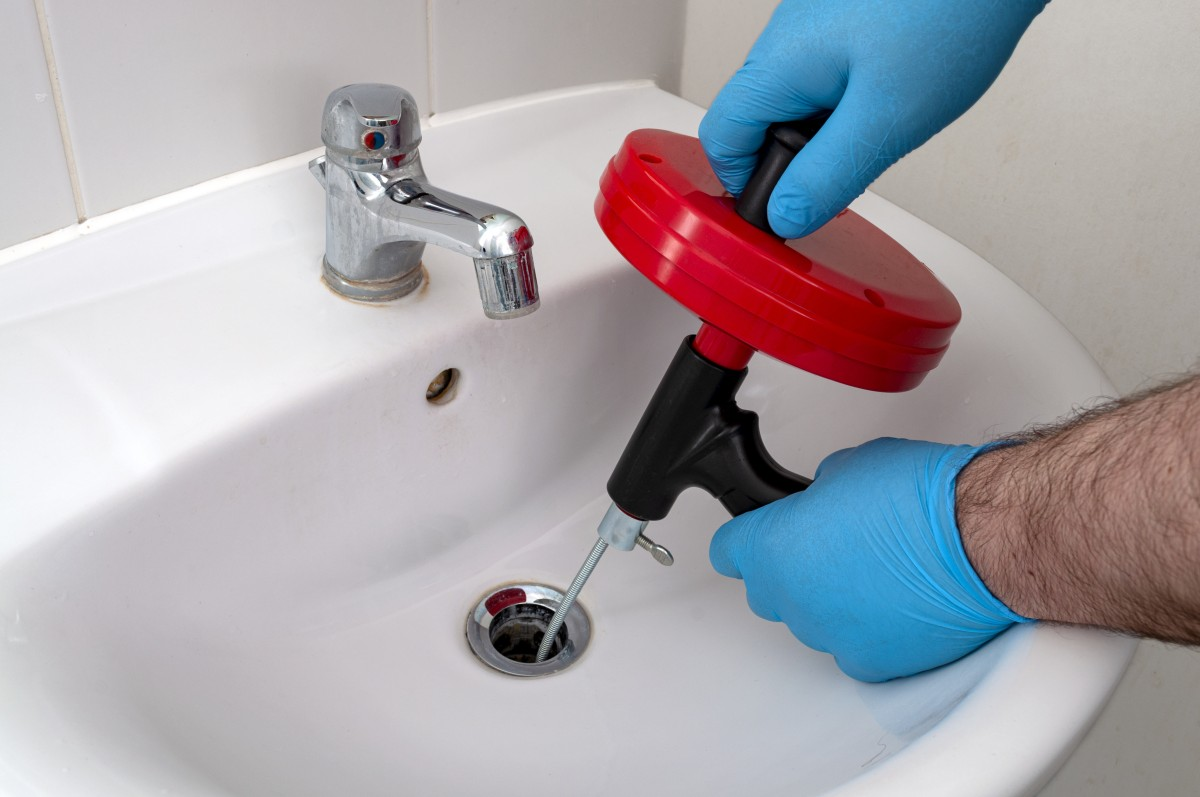
As impressive as vinegar is, you may occasionally encounter a stubborn debris. In such a case, a drain snake, which should be accessible at any hardware shop, can be a handy tool. Follow the manufacturer's directions to clear the bathroom sink drain of any leftover obstructions.
And that wraps it all up. Check if the unpleasant odour is still present by running that water and taking a deep breath. There should be no lingering smell, and the bathroom sink should drain appropriately after cleaning.
How to Clean a Shower Drain?
Use vinegar and baking soda to clean your shower drain by doing the steps below. This natural method works very well whether your shower drain is completely clogged, draining slowly, or needs to be cleaned to get rid of grime.
This simple solution can unclog and deodorize your shower drain because the vinegar and baking soda cause a chemical reaction that eats away at the grime and sludge at the drain's base. Now that all the gunk is gone, the pipe can drain water from your shower quickly and easily.
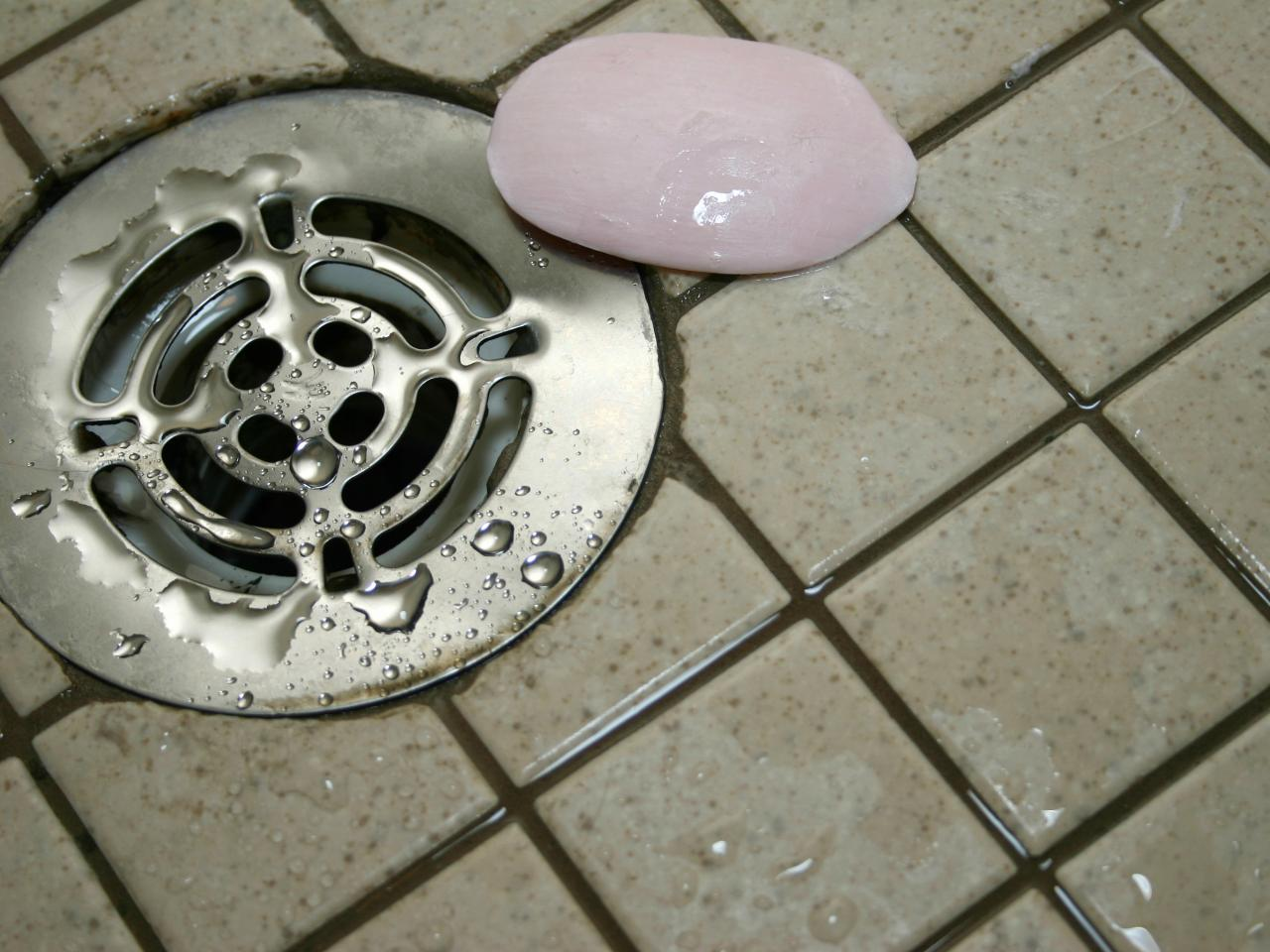
What You'll Need
Instructions
1. Pour boiling water down the drain
Take one gallon of water and bring it to a boil in a large pot. Put the pot on a counter and pour the water down the drain as soon as possible.
2. Sprinkle a cup of baking soda and vinegar
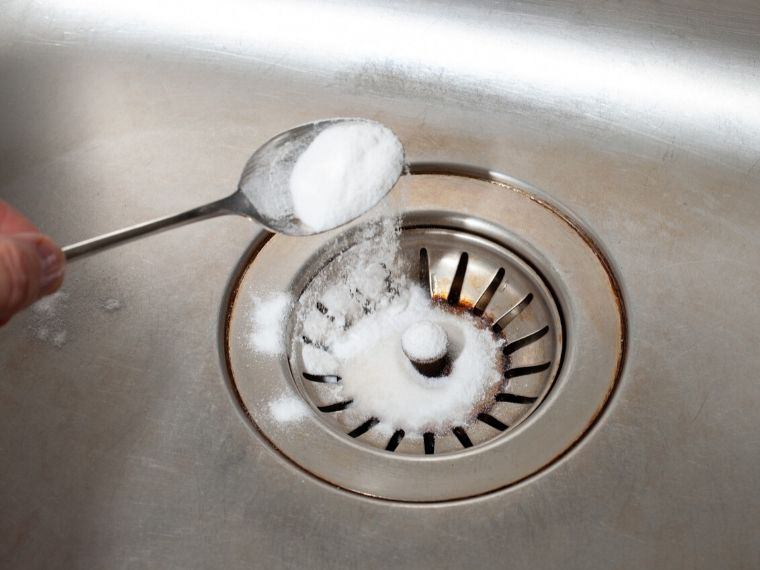
After you've poured in the hot water, add half a cup of baking soda. Sprinkle some of it down the drain and set a timer for 15 minutes. After approximately 10 to 12 minutes, prepare the next step by boiling 1 cup of water and adding half a cup of vinegar.
When the timer goes off, pour the water and vinegar solution down the shower drain. The baking soda and vinegar will begin to react at this stage, producing foam that will eventually rise above the drain. Preferably, you'd fold up a big towel or rag and jam it in to keep the reaction from spilling into the shower drain.
3. Flush the shower drain with hot water
After letting it sit for 15 minutes, pour another gallon of hot water down the shower drain to further flush the cleaning products.
4. Rinse and test the shower drain
Rinse the floor while the shower is on to see if the drain is working correctly. The water in the drains should be running freely and smelling clean.
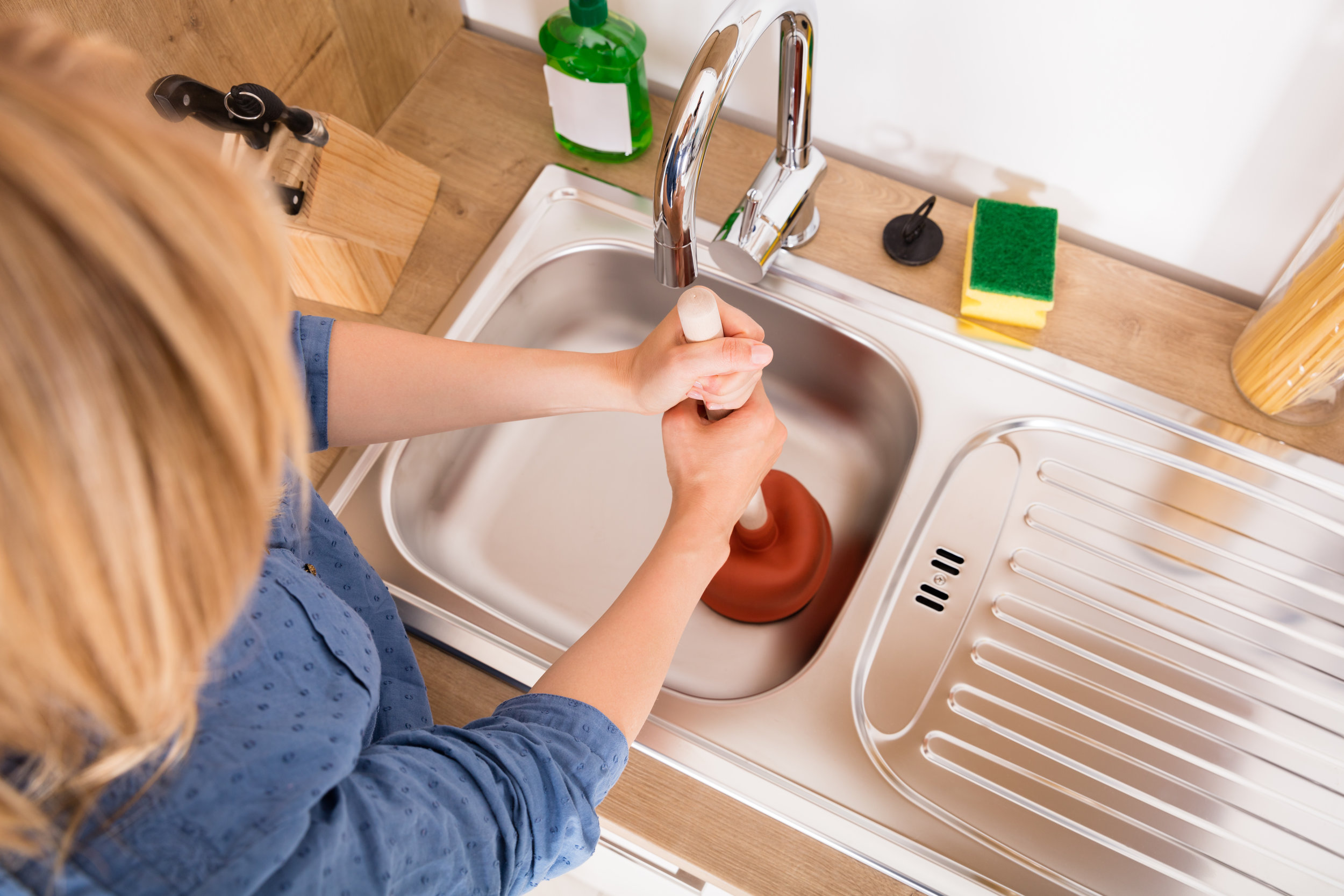
Time to Unclog Your Bathroom Drains with Ease!
And that's it! Cleaning the drains in your bathroom can be a difficult and messy task, but if you follow these steps and use the right cleaning products, you'll be able to unclog your shower and sink drains quickly.
We hope this blog has helped you learn how to clean bathroom drains in a way that works for your home.
If you're looking for further tips on cleaning your bathroom, feel free to check our ultimate bathroom cleaning guide.
FAQs
What causes black mold in the sink drain?
The black sludge in your drain is caused by bacteria that live on shaving cream, skin cells, moisturizers, toothpaste, hair clogs, soap scum, and phlegm. The issue with this black mould is that it does not dissolve rapidly. Putting additional water down the drain and thinking it will unclog itself will not eliminate the clog.
This black sludge can clog your drains, causing a lot of water to pool in your sink and take a long time to drain, which is inconvenient for everyone in the house. It is why it's advisable to unclog your sink drains before the situation worsens.
Why do you need to clean your bathroom drains?
One immediate effect of drain cleaning is an increase in the rate at which water can flow through them. If you keep your sink and other water fixtures clean, you won't have to worry as much about them backing up on collecting water.
Accumulated chemical deposits inside your drain pipe can cause corrosion of your plumbing. Having your lines cleaned professionally regularly is a surefire way to keep these leaks from occurring. It prevents you from damaging to get your property and replacing all of the drain lines at once, saving you the cost of doing so.
How often should you clean your bathroom drains?
Drains should be cleaned at least once a year, whether or not there are any apparent indicators of clogging. Regular preventative drain cleaning will keep your drains clear of obstructions, keep your system running smoothly, and give you much more peace of mind.
One annual treatment should be sufficient to main the advantages. If you last cleaned your drains in the past year or two, now is a perfect opportunity to do so.
